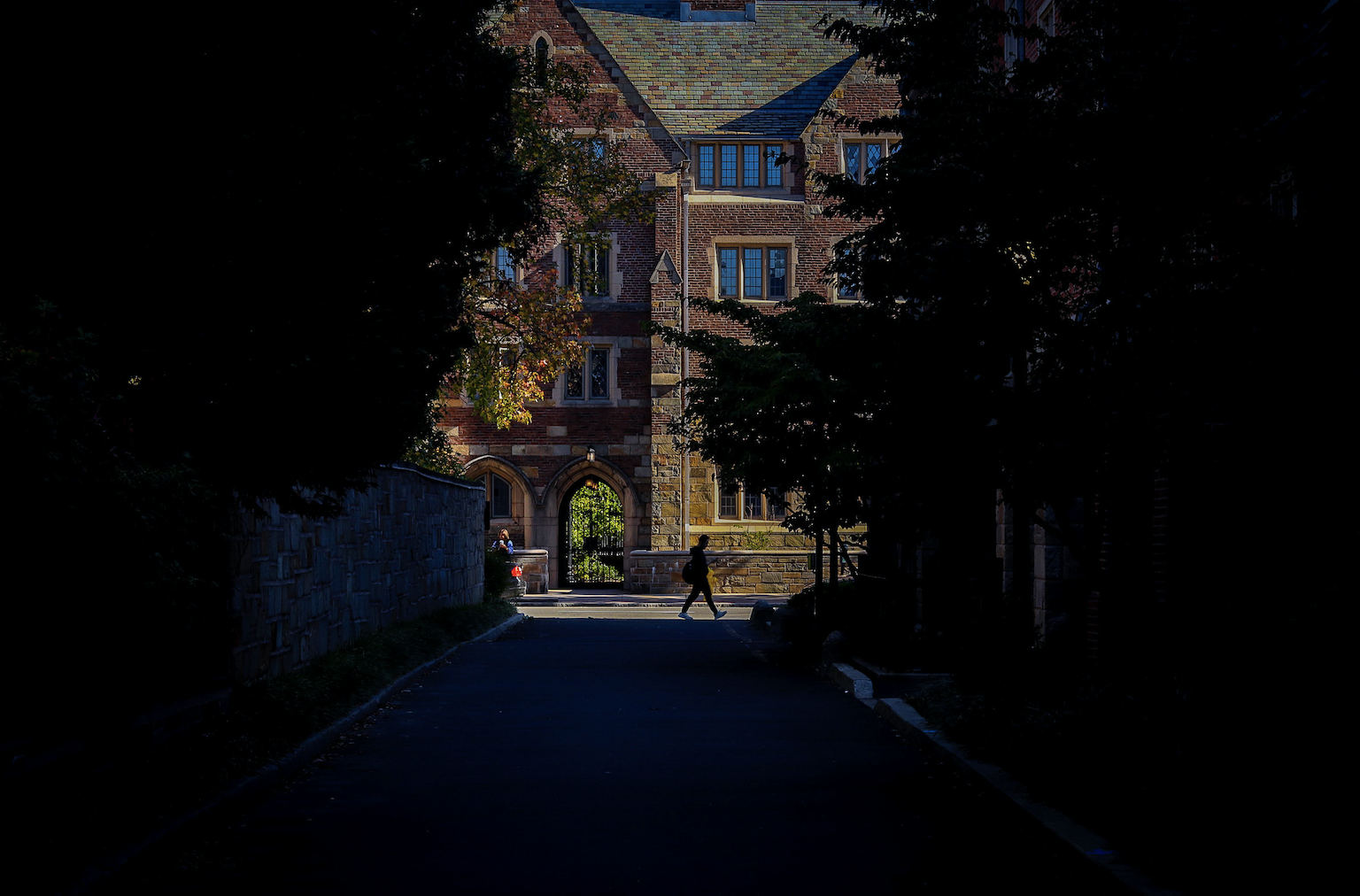
Marisa Peryer
A Yale community member has tested positive for COVID-19 on a preliminary test, and two others are undergoing evaluations at Yale-New Haven Hospital, according to an email from Yale Health Director Paul Genecin Saturday afternoon.
The identities of these patients remains unclear. According to Genecin, the hospital is awaiting further confirmation for the community member and is testing the two others — a Yale affiliate and a household contact.
“Yale New Haven Hospital is following Centers for Disease Control and Prevention (CDC) guidance and working with the state and local health departments, who are following their protocols for such cases,” Genecin wrote in his email. “At the same time, we are working to trace these individuals’ steps and to communicate with their close contacts.”
Genecin also urged Yale community members to practice social distancing and to follow University guidelines for preventing the new virus’s spread, including twice-daily temperature monitoring.
According to the CDC, symptoms for COVID-19 can arise within 14 days of exposure to the new virus and can vary widely in severity. Genecin instructed members of the Yale community to watch for coughing or trouble breathing — two signs of coronavirus infection.
The news comes as Yale and other universities across the globe have asked students and faculty members to avoid returning to campus. In recent weeks, the University has banned Yale-funded international travel and has moved classes online until at least April 5.
“Of course, the fact of these first cases has significant implications for the university,” Genecin wrote. “I have been in close touch with President Salovey, who is continuing to benefit from the advice of Yale experts who have helped guide the university’s ongoing response to COVID-19.”
Yale’s pandemic response plan has undergone recent updating with help from experts from the Yale School of Public Health and the School of Medicine. Any new University-level decisions in light of the case would come from University President Peter Salovey, Genecin added.
University President Peter Salovey wrote in a community-wide email Saturday night that online classes will continue for the rest of the spring semester and urged students not to return after Spring Break. For those still on campus, Salovey said that deans and other administrators “have been or will be in close touch with such students.”
In an email statement to the News, University spokeswoman Karen Peart said that Yale is working to identify “close contacts of patients with COVID-19.”
“We then advise contacts about measures to care for themselves, protect the community, and detect illness as early as possible,” she wrote.
The Yale community member is among the first to test positively for the virus in New Haven County. As of Friday afternoon, all 29 county residents who underwent tests in a State Public Health Lab did not report having the virus. But on Saturday, the New Haven Register reported that the Yale New Haven Health System’s chief nursing executive, Beth Beckman, and several patients have tested positive for the disease, and that its chief clinical officer Thomas Balcezak has been exposed to the virus after his wife tested positive for COVID-19.
Yale New Haven Hospital Media Coordinator Mark D’Antonio provided the News with a Saturday statement from Chief Executive Officer Marna Borgstrom confirming the report but did not comment further.
In an interview with the News, Yale School of Public Health Dean Sten Vermund said that the presence of more coronavirus-infected residents in New Haven is certain.
“You don’t introduce a symptomatic case without the bottom of the iceberg also existing,” he said.
Since signs of COVID-19 can seem similar to those of the common flu, those infected may not recognize that they have the virus at all — which can prevent adequate testing from happening, he added.
Vermund said he has phone conversations with health experts several times per day in hopes of ensuring the safety of Yale community members and those in the broader region.
“We’re working hard at this, but as you know, it’s somewhat uncharted territory,” he explained. “There’s still a lot of unanswered questions.”
Gregg Gonsalves, a professor of epidemiology at the Yale School of Public Health, underscored the importance of social distancing in a Thursday email to the News.
According to Gonsalves, Yale is an institutional amplifier, where residential colleges and packed events can “super-charge transmission.” Sending students home, he said, can prevent the new coronavirus from spreading as rapidly.“Social distancing is the only tool we’ve got to fight this virus at the moment,” he wrote. “Remember, you may not get sick from coronavirus, but others may and the virus can take a path from you to them. Social distancing allows you to be an active participant in combating this pandemic.”
Last updated: March 14, 9:43 p.m.
Matt Kristoffersen | matthew.kristoffersen@yale.edu







